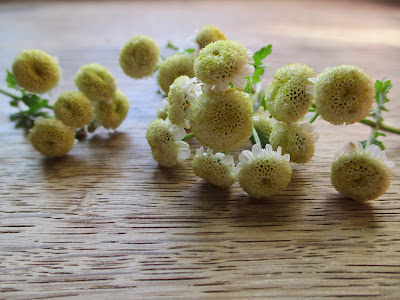
"More than conversation at the interface, it is creative assemblages like these that explore and elaborate the particular dynamic capacities that digital media afford and the ways that through them humans and machines can perform interesting new effects (...) in uniquely particular ways." Lucy Suchman (2009). Human-machine reconfigurations: plans and situated actions.
Dec 27, 2025
Ferment
Dec 8, 2025
December
Nov 25, 2025
Real luxury is carbon negative
Sustainability in practice. Bouquet with plants grown locally. No artificial fertilizers or pesticides. Collected manually, near creative assembling point. Made with love and care. Hand delivered by the creator in nearby location, reached in less than 30 minutes by foot. Including complimentary smile and a good day hug. To dispose end of life bouquet, compost, cut in small pieces to use as mulch or use the dry plants as materials to do tapestries ;)
Photo by Monica Pinheiro CC BY-NC-SA (CC) November, 2025.Aug 3, 2025
Sustainable prosperity
«A shift towards an economy of care, craft and creativity (...) is not just about the quality of public services or the possibility of creating decent employment. It's a direct answer to the search for a sustainable prosperity. The quest for the good life. To the desire to live well - within the limits of a finite planet.» Tim Jackson (2025). The Care Economy.
Photo of tapestry «Connected» (81 x 91 cm) by Monica Pinheiro CC BY-NC-SA (CC). August 2025.
Oct 8, 2023
Less machines
Sep 23, 2023
Setembro
"Feeling the touch, discovering the colour, memorizing the smell. Weaving quietly different textures and tensions. Creating peace to guide action. Liberating the mind to shape possibilities." June 2021, What can we do with what we already have?...
Jul 19, 2023
July
Jul 2, 2023
nearness, seasonality and sustainability
May 12, 2023
May
"While options range from incremental changes to fundamental reform, science provides a clear warning about continuing on our current path." in Beyond growth: pathways towards sustainable prosperity in the EU, document for the European 'Beyond Growth' conference taking place next week (15 to 17 May, 2023), prepared by the Parliament, Directorate-General for Parliamentary Research Services, presenting "the economic and socio-ecological challenges facing today's society and offers a reflection on possible transition pathways and associated tools to move beyond growth in EU policies. The focus is the European Union and its Member States, with the global context integrated where relevant for understanding the status quo and discussing options." See also the brief «'beyond growth': concepts and challenges» (May 2023).
Dec 5, 2021
December
Nov 10, 2021
Success
"The Natural World definition of success is not keeping offspring alive in a generation. Success is keeping offspring alive for 10 000 generations or more. This is the magic of Nature." But since "you are not going to be here to take care of 10 000 generations from now, what organisms learned to do, is to take care of the place, that's going to take care of their offspring. (...) Life has learned to create conditions conducive to life (...) that's also the design brief to us. We have to learn to do that." in Biomimicry video from Biomimicry Institute. Image by Monica Pinheiro, license CC BY-NC-SA.
Oct 6, 2021
The choice is (still) ours to make
To form a collective will, a «We», "will require the critical production and sharing of knowledge, resistance to flattening aesthetic diversity, and the invention of sustainable models that don´t threaten the viability of the whole, whether economically or ecologically, socially or institutionally" and "asserting a new biocentric imperative for living, producing, and consuming. (...) The choice is (still) ours to make." T.J. Demos (2016). Decolonizing Nature. Contemporary Art and the Politics of Ecology. Image by Monica Pinheiro, license CC BY-NC-SA ( CC ).


















